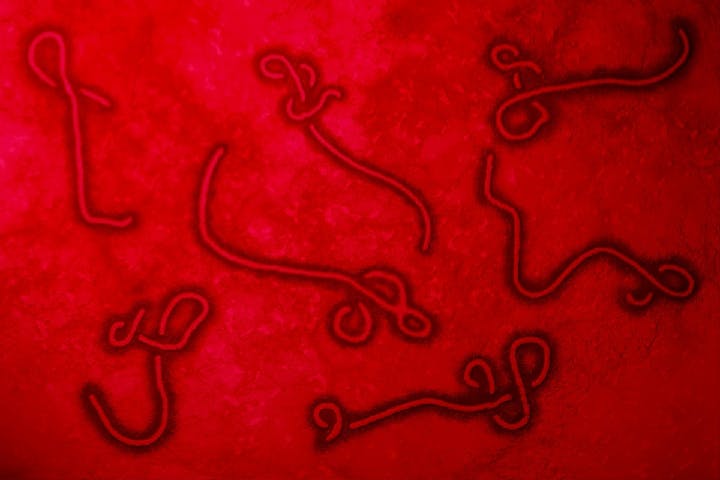Why didn’t Liberians follow government orders during the Ebola crisis?
– Isabel Larroca
The response of many Liberians to Ebola containment efforts demonstrates the dangers of unreliable governance.
Coverage of the 2014 Ebola outbreak in West Africa was dominated by incredulity at the rapidity of the virus’ spread and intense fear of potential transmission to the United States. As the body count grew and four cases were identified in the U.S., the media’s focus frequently fell on African resistance to containment practices. Deadly attacks on health care workers, secret burials that increased the risk of infection, and raids on quarantine clinics were met with disbelief and incomprehension.
This media narrative fed the misidentification of “ignorance” and “superstition” as the underlying causes of local noncompliance, writes Mary H. Moran in Current History. Relying on “familiar tropes of African ‘backwardness,’” Western journalists ultimately overlooked a more probable explanation: suspicion towards a government perceived by many as uncaring and corrupt.
Moran focuses on Liberia, where an estimated 11,207 people have died from Ebola since December 2013. Following two civil wars that spanned from 1987 to 2003, a transitional government facilitated democratic elections in 2005, resulting in the election of the country’s current president, Ellen Johnson Sirleaf. While widely admired by the international community, among Liberian citizens, she has gained a reputation as untrustworthy — an image that grew with her first election victory, beset by charges of fraud.
Sirleaf’s reelection bid in 2011 was similarly marred by accusations and mistrust. Given that she had initially promised to serve only one term, the fact that she chose to run again raised concerns that she planned to hold onto power indefinitely. While the race itself was close, the sudden announcement that Sirleaf would receive the 2011 Nobel Peace Prize four days before the election was seen by many Liberians as a signal from the international community that it “would accept no other outcome than a second term for Sirleaf.”
Additionally, Sirleaf has appointed several of her sons to government offices, failed to significantly reduce unemployment rates or rebuild the educational system, and presided over numerous land concessions to foreign developers. Consequently, there has been a growing feeling that Sirleaf’s administration functions through a “politics of exclusion.”
In December 2013, as Ebola began to spread in Liberia, Sirleaf sought to convince citizens to comply with containment efforts, despite the fact that many citizens believed she had invented the crisis. The assistance of external humanitarian aid organizations only exacerbated the situation, inadvertently establishing a response system that lacked coordination or efficiency. Calls to hotlines intended to ease reporting illness and deaths, were often left unanswered. Burial teams had waiting periods as long as multiple days, leaving contagious bodies uncollected. Clinics in rural areas lacked the staff and equipment necessary to effectively treat people, and were rarely able to replace health care workers killed by the virus. In an attempt to slow the spread of Ebola, Sirleaf turned from her unreliable health care system to her military to cordon off sections of Monrovia in July 2014. This led to further disorder, as violence broke out between troops and residents, resulting in the death of a 16-year-old boy.
One can see where a combination of lack of trust in the government and ineffective response to the virus contributed to an overall sense of abandonment. Many Liberians suspected that any aid sent to Liberia would only serve to make the president and her officials richer, while ordinary people were left to die in the streets. As resources to combat Ebola either proved inadequate or hurt citizens, there was little left to contradict this belief.
In the absence of meaningful assistance, communities banded together to trace contact with those infected, deliver food and care for the vulnerable, and share information on the virus. While Moran believes these actions contradict stereotypes about “irrational” Africans, she also suggests that they serve as “evidence of the crisis of legitimacy in Liberia,” as “people turned from looking to their government for help to relying on their own communities.”
The World Health Organization has since declared the Ebola outbreak in Liberia over. Although Sirleaf’s reputation internationally remains intact, the extent of the damage done to her relationship with her citizens remains to be fully understood. Global concerns about developing countries often center on more straightforward needs, like poverty, hunger, and infant mortality. But as evidenced by the chaos and loss of life during Liberia’s struggle with Ebola, the inability to trust in one’s government can have an equally devastating effect.
* * *
The Source: Mary H. Moran, “Surviving Ebola: The Epidemic and Political Legitimacy in Liberia,” Current History 114.772 (2015): 177-182.
Photo courtesy of Shutterstock
